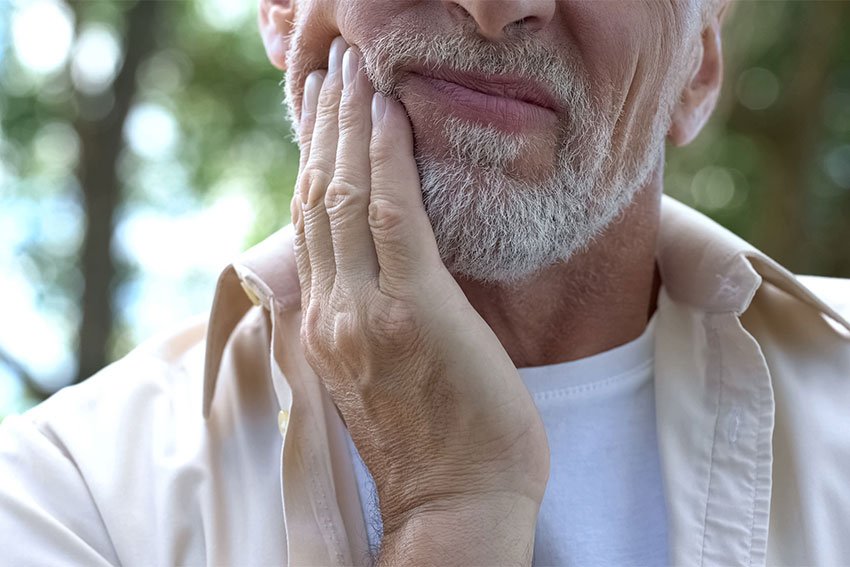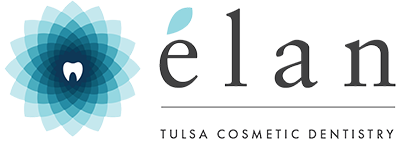What Could Be Causing Your Jaw Pain?

If you are experiencing jaw pain, you might be tempted to dismiss it. You might think, Doesn’t everybody get little aches and pains sometimes? That may be true, but there are good reasons to pay attention to your jaw pain.
Heart Attack
Let’s get this one out of the way first. It’s the biggest cause for concern, but also one of the rarest. Why does a heart attack cause jaw pain? It’s a phenomenon known as referred pain, where your brain confuses the source of pain and attributes it to other regions than where it truly started. Pain signals aren’t like telephone calls where one specific nerve in the heart calls another nerve in the brain. They’re more like a series of channels where water is flowing. The pain signals are like dye put in the water, and the brain has to guess where it came from. Usually, the interpretation is good, but sometimes it’s mistaken.
Jaw pain associated with a heart attack is likely to be diffuse. There’s no specific part of your jaw that’s hurting (partly because your jaw isn’t hurting at all!). Also watch for other associated symptoms, such as being flushed or developing dizziness and confusion.
Temporomandibular Joint Disorders (TMJ or TMD)
TMJ is probably one of the most common causes of jaw pain because it’s a diverse category of related jaw conditions that can cause many types of jaw pain. Most often, the pain is in the muscles, which are tense, tender, and sore. Sometimes jaw pain may be felt in the bone, especially if you are clenching or grinding teeth, which is common in patients who are stressed. However, the jaw pain may also be felt in the joint itself. Finally, jaw pain related to TMJ may be nerve pain, which can be sharp and electric. You may also experience intermittent numbness related to your jaw pain.
But the easiest way to identify TMJ is by its other symptoms. TMJ can cause many symptoms, so you likely have it if you experience one or more of the following:
- Jaw popping or clicking
- Irregular jaw motion
- Teeth clenching and grinding
- Teeth wear and damage
- Ringing in the ears
- Ear pain and fullness
- Vertigo or dizziness
- Headaches
- Neck pain
- Upper back pain
- Tingling or numbness in the fingers
If you do suspect TMJ, a neuromuscular dentist is your best choice for treatment. However, if your symptoms are related to stress, finding ways to relieve your stress might improve your jaw pain symptoms.
Dental Problems
Sometimes dental problems might be felt in the jawbone rather than in the teeth. In particular, serious gum disease can attack your jawbone, causing jaw pain.
An infected tooth might also cause jaw pain. Although the infection is in the tooth, the nerves run through the jaw and the body might be confused about the source of pain. Other times, the pain is felt in the roots of the teeth, which are submerged in the jawbone.
Impacted wisdom teeth can also cause jaw pain because the surrounding tissue becomes infected.
Symptoms that can clue you into dental problems include:
- Chronic bad breath
- Red, swollen, or bleeding gums
- Receding gums
- Discolored tooth
If you have these symptoms as well as tooth and jaw pain, it’s a good idea to contact your dentist for assistance.
Sinus Problems
Allergies, sinus infections, or colds can all cause jaw pain. If you experience any symptoms of a cold or flu alongside your jaw pain, we suggest waiting for the cold and flu to clear up before heading to the dentist. Sinusitis causes inflammation in the nasal cavities following a cold or allergies and can often cause jaw pain in one or both sides of the jaw.
Arthritis in the Jaw
If you’re wondering “Can you get arthritis in your jaw?” The answer is yes! Another one of the causes of jaw pain is Rheumatoid Arthritis. Rheumatoid arthritis is an autoimmune disorder in which your immune system attacks your joints. The temporomandibular joint is one of the most commonly attacked joints, which can cause your jaw joint pain.
If you have rheumatoid arthritis, the joint is likely to feel swift and sore. It’s also likely that this isn’t the only joint that’s affected. If you start to have the problem with other joints, it’s likely you need to be examined for rheumatoid arthritis.
It’s also possible that patients have osteoarthritis or psoriatic arthritis that causes their jaw pain. Osteoarthritis is linked to overusing joints therefore if you’re overusing your jaw joints, it’s possible to develop it there. On the flip side, psoriatic arthritis is a genetic autoimmune condition that affects about 30% of people who suffer from psoriasis. Without treatment early on, it can cause irreversible jaw damage.
Osteomyelitis
Osteomyelitis is a blood-borne infection that can attack your bones and joints. This attacks your jaw joint, but that’s rarely the only place it attacks. If your jaw swells up and you develop a fever as well as jaw pain, then this is a likely cause of your discomfort.
Ear Infection
Another unexpected cause of jaw pain is from an ear infection. The pain from inside the ear can extend to the area around or behind the ear which includes teeth, sinuses, and your jaw. If you’re experience ear pain, jaw pain, fever, low energy, or congestion, you might have an ear infection. It’s important to seek medical attention for antibiotics as soon as possible because the infection can spread.
Sternocleidomastoid Pain
The sternocleidomastoid is a muscle that extends from the collarbone to the ear and when it becomes injured in any way, it can cause jaw pain, sinus pain, eye pressure, or other symptoms one might be mistaken for a cold or infection.
Let Us Diagnose Your Jaw Pain in Tulsa
If you are experiencing jaw pain in Tulsa, TMJ dentist Dr. Meghan Hodges at élan can help provide a scientific diagnosis for your condition so you can get treatment that matches your needs.
Please call (918) 528-3330 today for an evaluation of your jaw pain.

élan Tulsa Cosmetic Dentistry
10031 S Yale Ave #104
Tulsa, OK 74137

